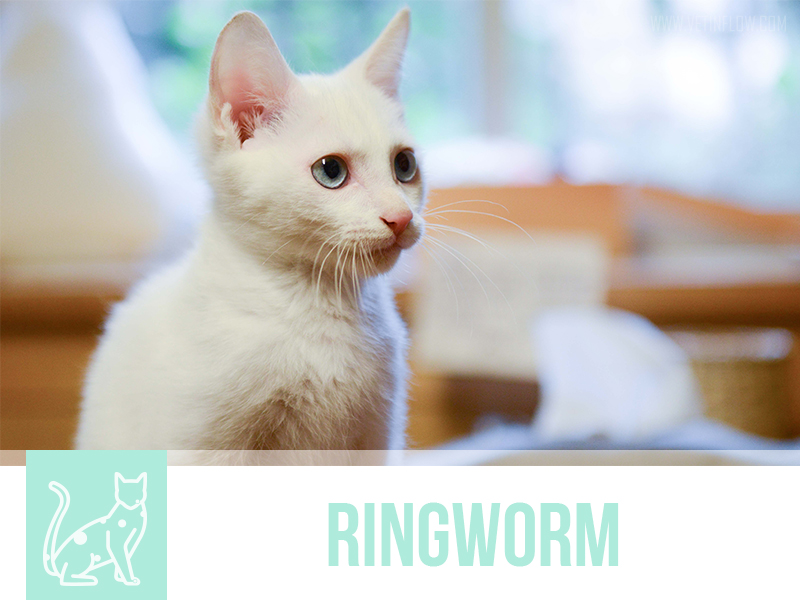
Ringworm

Despite the name, Ringworm is not a worm at all! Ringworm, also called dermatophytosis, is actually caused by a fungus called Microsporum canis and this fungus can be found pretty much everywhere, with a somewhat higher incidence in warm and humid weather.
Clinical signs are very variable: some cats can have severe hair loss, skin lesions and very bothersome itchiness while others seem to only have minor hair loss or may even be infected but show no signs at all. Younger cats and long-haired animals are more prone to this disease.
When confronted with the possibility of a cat infected with M.Canis, do not delay seeking treatment as this disease can affect people and other animals like dogs!
As it is a fungus that resides on skin and hair, it's particularly important in multicat households because it's easily transmitted between cats as well as living in bedding and floor surfaces for a long time.
Successful treatment includes not just treating the cat or cats that might be infected but also thoroughly disinfecting the areas the cats had access to in the house.
If you suspect your household might be having a ringworm issue, contact your vet and they will be more than glad to go over treatment options and ways to prevent it in the future.
Would you like to know more about cats? Check our Feline Courses:
Feline courses
Published: 08 Feb 2018
Read the previous article: Keep your dog's flea and tick treatment up to date!

